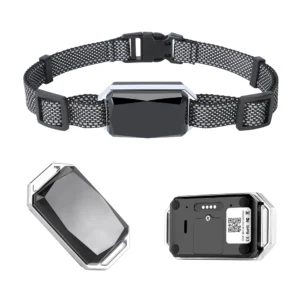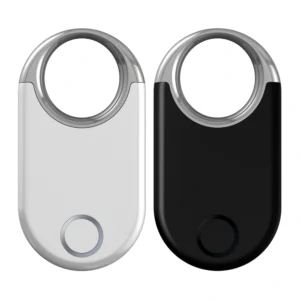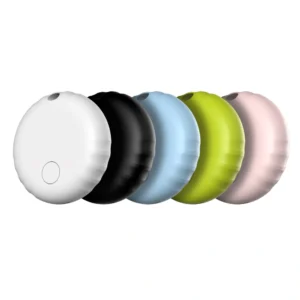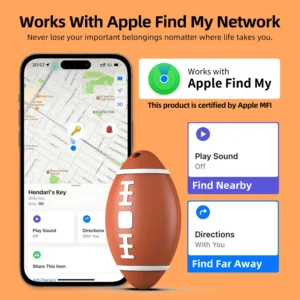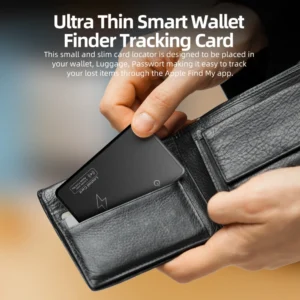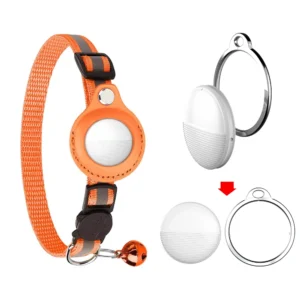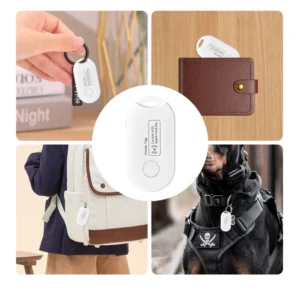Detailed explanation of Android Ecological Bluetooth anti-lost device working principle
In the Android ecosystem, the core value of Bluetooth anti-drop devices (such as the Samsung Galaxy Smarttag and the Google Find My Device Network adapter tag) is to“Make things traceable.” The underlying logic can be summarized as follows: relying on a large network of Android devices, the“Crowdsourcing acquisition” and“Encrypted feedback” of location information are realized through Bluetooth low energy (BLE) signals, this is in line with Apple AirTag’s“Eco-tracking” approach, but with differences in the device base and technical details.

Dismantling the core of how it works
1. The initial pairing: creating a“Cryptographically exclusive association”
Once you’ve got your anti-drop Device, you’ll need to bundle it with your own App (Samsung uses“SmartThings Find”, Google uses“Find My Device”) . At the heart of this process is“Security verification”:
The anti-drop device generates a unique encrypted device ID, which is tied to the user’s Android account (Google/Samsung) in a“One-to-one” relationship
When pairing, Bluetooth encrypted transfer protocol (such as AES-128) is used to avoid the device ID being intercepted by a third party and ensure that the tag is only controllable by the user.
Bonus: the paired rear-guard dispenser will default to a“Low-power broadcast mode,” emitting only intermittent BLE signals for both tracking and battery life (6-12 months for most tags, relying on CR2032 button batteries) .
2. Up Close: Bluetooth direct connection + signal boot
When the anti-dropping device is within the phone’s“Bluetooth coverage”(usually 40-80 meters indoors, but can extend up to 100 meters in an open environment) , the“Bluetooth direct connection” enables fast positioning:
Signal transmission: the anti-lost device continues to broadcast its encryption ID with low-power Bluetooth (BLE) . The advantage of BLE technology is“Low energy + short-distance accurate transmission” to avoid frequent power consumption;
Mobile Phone Detection: after opening the App, the phone will actively scan the surrounding BLE signal, matching the bound anti-lost device ID;
Distance and direction: use RSSI (Received Signal Strength Indicator) values to estimate distance-the closer an RSSI value is to 0(the stronger the Signal) , the closer the distance, the App displays“Far/medium/near/very close” text plus a progress bar/radar chart
Precise positioning aids: you can use the App to trigger the anti-lost device to ring (usually 80-90 db sound) , or turn on the flash (some models with lights) to quickly find items in the corner of drawers, sofas, etc. .
3. Remote Lookup: crowdsourcing + encrypted transmission in the cloud
This is the“Core capability” of the anti-lost device, which uses an“Anonymous relay network” of Android devices around the world to track items when they are far away from the phone (beyond Bluetooth) :
(1) three steps to network operation
Anonymous relay trigger: any Android Device with“Find My Device/SmartThings Find service” turned on and Bluetooth turned on (e.g. Samsung phone, Google ecosystem phone for unknown users) passes by the anti-drop Device, will passively receive its broadcast encryption ID
Encrypted location upload: the“Relay device” will automatically package the“Anti-lost device encryption ID + its current GPS/network location + detection time” and transmit it to the Google/Samsung Cloud Server via HTTPS encryption, the process is completely“Silent”(users don’t feel it and don’t need any extra operations)
Location query feedback: when the user opens the App, the phone sends a“Query request” to the cloud, which matches the anti-drop ID and decrypts the last encrypted location, display as a“Map marker + timestamp”(e.g. “10 minutes ago, near XX mall”) .
(2) core mechanism of privacy protection
The whole crowdsourcing process strictly protects the privacy of the three parties and avoids information leakage:
Relay device side: only receive encryption ID, can not resolve the label ownership, do not know their upload is“Which person’s anti-lost device location”;
User side: can only see the location of their tags, can not know which device to help upload;
Cloud-side: only“Encrypted ID + location + time” is stored, no user ID is associated, and location data is cleaned periodically (usually for 7-30 days, depending on the vendor) .
Major tracking networks in the Android ecosystem
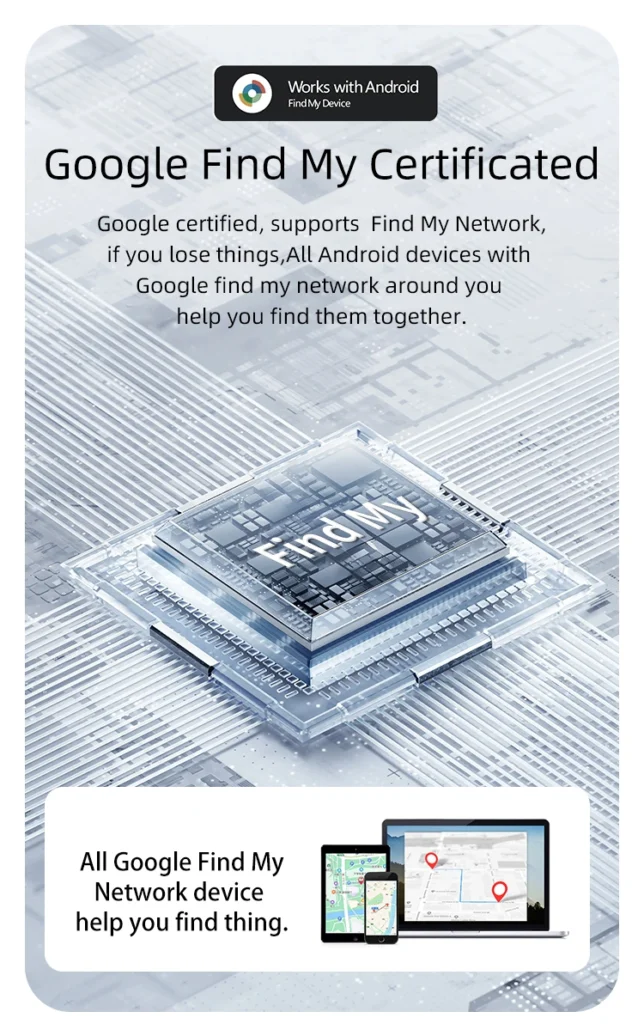
Currently, there are two separate tracking networks in the Android ecosystem. The principles are similar, but the compatibility and application scenarios are different. The specific differences are as follows:
| Dimensions of comparison | Google Find My Device Network | Samsung SmartThings Find Network |
| Depending on device range | All devices (including third-party brands) that run Android 9 + and have access to Google accounts | Samsung Galaxy phones/tablets only (access Samsung account) |
| Network size | Billions of devices worldwide (theoretical potential) , with a wide range of coverage | Hundreds of millions of devices around the world, focused on Samsung users |
| On behalf of the fit tag | Chipolo One Point, Pebblebee Tag, EUFY Tag | Samsung Galaxy Smarttag, Smarttag + |
| Precise positioning technology | Both tags and mobile phones support ultra-wideband (UWB) , which is currently in the stage of gradual adaptation | SmartTag + supports UWB with“Arrow direction + centimeter distance” guidance (similar to AirTag) |
| Assisted Lookup | There is no support for AR lookups, just RSSI and tweets | Some Samsung devices, such as the S23/S24 series, support an AR camera interface that visually displays the tag’s location |
| Chinese mainland usability | Limited (relying on Google’s mobile service GMS, which is not pre-installed on most phones in China) | Works (relies on Samsung’s own SMS mobile service, no GMS required) |
| Private data storage | Google Cloud, 7 days of data retention | Samsung Cloud, 14 days of data retention |
The core technology added: UWB technology (precise positioning key)
![]()
Some high-end anti-dropping devices (such as Samsung SmartTag +) are equipped with UWB technology, whose positioning accuracy far exceeds that of traditional Bluetooth. The core principle is:
Signal Characteristics: UWB can simultaneously measure time of flight (TOF) and angle of flight (AOA) by transmitting nanosecond pulses, avoid errors in Bluetooth RSSI-only estimations (such as signal attenuation due to wall occlusion)
Positioning effect: indoor can achieve“Centimeter-level positioning”, the App will display real-time arrows (such as“3 meters in front, left 15 °”) , suitable for shopping malls, garages and other complex environments to quickly find things;
Prerequisites: the phone must also support UWB (e.g. Samsung S21 and above flagship, Google Pixel 6 and above) , otherwise it can only be used in normal Bluetooth mode.
Conclusion: the“Three-layer tracking logic” of the Android anti-lost device
The Android ecosystem Bluetooth anti-dropping device is essentially a“Layered fit” tracking solution:
Close range (0-100m) : by“Phone-tag Bluetooth direct connection”, RSSI signal strength + ringing to achieve rapid positioning, the core is“Low power + convenience”;
Long-distance (more than 100 meters) : relying on the“Global crowdsourcing network of Android devices”, with anonymous encrypted relay + cloud feedback to achieve cross-regional tracking, the core is“Scale + privacy”;
Precise positioning (indoor complex environment) : relying on“UWB technology”, with centimeter-level accuracy + arrow guidance to achieve efficient search, the core is“Accuracy + visualization”.
This design takes advantage of the device scale of the Android ecosystem while ensuring privacy through multiple encryptions, giving the“Small tag” the ability to be“Globally traceable”, this is especially useful for everyday items such as keys and backpacks.

